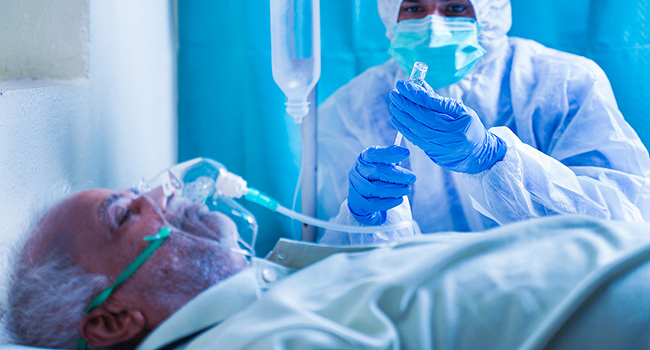
Hospital-acquired infections, or healthcare-associated infections (HAIs), are infections that patients acquire during their stay in a healthcare facility. Hospital-acquired pneumonia (HAP) is a lung infection in patients during their hospital stay. It is a significant concern as it can lead to severe illness and increased mortality rates. HAP typically develops within 48 hours of admission and is often caused by bacteria or viruses.
Factors contributing to HAP include weakened immune systems, prolonged bed rest, the use of mechanical ventilation, and exposure to healthcare-associated pathogens. Prevention strategies such as proper hand hygiene, frequent turning of patients, and adequate sterilization of equipment are crucial in reducing the risk of HAP. Early recognition and prompt treatment are essential for improving patient outcomes and minimizing the impact of this serious infection.
Clinical Trial
A clinical
trial investigated whether interferon gamma-1b can prevent hospital-acquired pneumonia in patients who are on mechanical ventilation. Critically ill adults with one or more acute organ failures, who required mechanical ventilation, were randomly assigned to receive either interferon gamma-1b (100 µg every 48 hours from day 1 to 9) or a placebo following the same schedule. The primary outcome measured was a combination of hospital-acquired pneumonia or all-cause mortality on day 28. The study aimed to enroll 200 participants, with interim safety analyses conducted after enrolling 50 and 100 patients.
Results
Among the 109 patients randomized (median age, 57 years; 37 women; all from France), 108 (99%) completed the trial. After 28 days, 26 out of 55 participants (47.3%) in the interferon gamma group and 16 out of 53 (30.2%) in the placebo group had either hospital-acquired pneumonia or died. In an exploratory analysis, it was observed that hospital-acquired pneumonia occurred more frequently in a subgroup of patients who exhibited a reduced response to interferon gamma treatment.
Adverse Events
Serious adverse events were reported in 24 out of 55 participants (43.6%) in the interferon gamma group and 17 out of 54 (31.5%) in the placebo group. The study was halted after the second safety analysis due to potential harm associated with interferon gamma-1b.
Conclusion
The administration of interferon gamma-1b did not significantly reduce the occurrence of hospital-acquired pneumonia or mortality on day 28 in mechanically ventilated patients with acute organ failure. The trial was terminated prematurely due to safety concerns associated with interferon gamma-1b treatment.
__________

